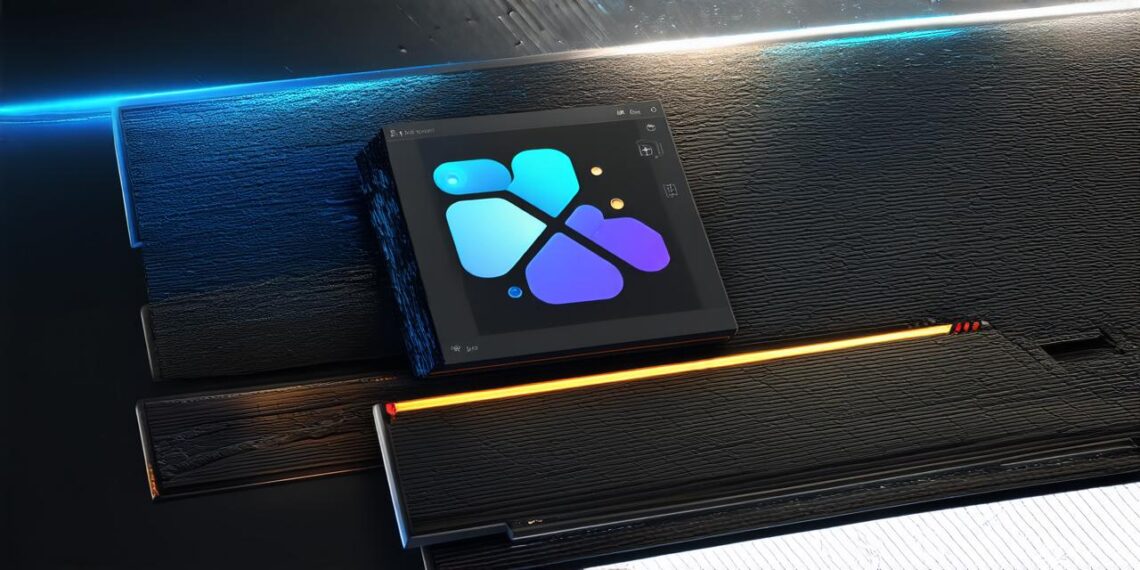Introduction
Game development is a complex process that requires a variety of tools and technologies to bring an idea to life. From conceptualization to implementation, the right software can make or break a game’s success. In this comprehensive guide, we will explore the top software options for game development, including their features, benefits, and drawbacks. We will also delve into case studies and personal experiences to help you choose the best software for your needs.

1. Unity
Unity is one of the most popular game engines in the industry, with a massive user base that spans from indie developers to large studios. It offers a wide range of features and tools that make it easy to create games for multiple platforms, including PC, mobile, console, and VR. Unity supports both 2D and 3D game development, and its powerful graphics engine can handle complex visual effects and animations.
One of the biggest advantages of Unity is its cross-platform compatibility. With a single codebase, you can develop games for multiple platforms with minimal effort. Additionally, Unity has a large community of developers and artists who contribute to its extensive asset store, which contains thousands of pre-made assets and tools that can save you time and resources.
However, Unity can be challenging for beginners due to its steep learning curve and complex interface. It also requires a lot of memory and processing power, which can make it slow and crash-prone on lower-end machines.
2. Unreal Engine
Unreal Engine is another popular game engine that offers powerful graphics and advanced features for creating immersive games. It supports both 2D and 3D game development and has a wide range of tools for animation, physics, and networking. One of the most significant advantages of Unreal Engine is its real-time rendering capabilities, which allow you to see how your game will look and perform in real-time, making it easier to make adjustments and optimize your game’s performance.
Unreal Engine also has a strong focus on virtual reality (VR) development, with built-in support for VR headsets like the Oculus Rift and HTC Vive. This makes it an excellent choice for developers looking to create VR games or experiences.
However, Unreal Engine can be expensive and resource-intensive, requiring a powerful machine and graphics card to run smoothly. It also has a steep learning curve and can be challenging for beginners.
3. Blender
Blender is an open-source 3D modeling and animation software that is widely used in the game development industry. It offers a vast array of features and tools for creating 3D models, animations, textures, and effects. One of the biggest advantages of Blender is its flexibility and customization, which allows you to create any type of 3D content, from simple models to complex animations and environments.
Blender is also free and open-source, making it accessible to developers of all skill levels and budgets. It has a large and supportive community of users who contribute to its extensive library of plugins and add-ons, which can help you streamline your workflow and save time.
However, Blender can be challenging for beginners due to its steep learning curve and complex interface. It also requires a lot of memory and processing power to handle complex 3D projects.
4. Photoshop
Photoshop is an industry-standard image editing software that is widely used in game development for creating textures, environments, and characters. It offers a vast array of tools and features for manipulating images, including layers, filters, brushes, and masks. One of the biggest advantages of Photoshop is its seamless integration with other Adobe products, such as Illustrator and InDesign, making it easy to create cohesive designs and assets.
Photoshop is also widely supported by game engines like Unity and Unreal Engine, making it a popular choice for creating high-quality 2D and 3D assets.
However, Photoshop can be expensive and resource-intensive, requiring a powerful machine and graphics card to handle complex projects. It also has a steep learning curve and can be challenging for beginners.
Summary
Choosing the right software for game development is a critical decision that can make or break your project’s success.





